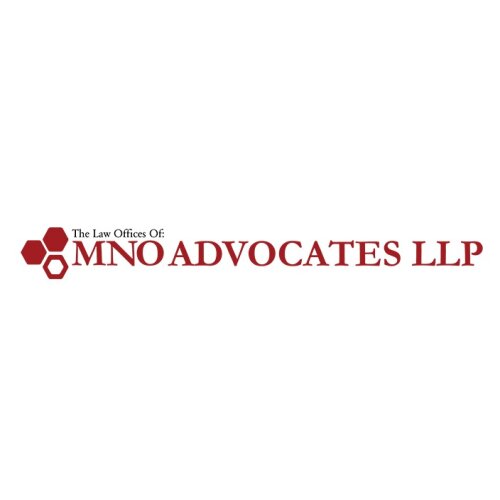Best Banking & Finance Lawyers in Kakamega
Share your needs with us, get contacted by law firms.
Free. Takes 2 min.
List of the best lawyers in Kakamega, Kenya
About Banking & Finance Law in Kakamega, Kenya
Banking and finance law in Kakamega, Kenya is a crucial area of legal practice that governs the activities of financial institutions as well as their interactions with individuals and businesses. The region has seen considerable growth in financial services, supported by both local financial institutions and branches of major national banks. This has led to an increased need for legal expertise in navigating regulatory compliances, loan agreements, investment advice, and resolving financial disputes. The legal framework is heavily governed by national law, but local practices and policies also play an important role in shaping financial transactions and agreements.
Why You May Need a Lawyer
There are several situations in which individuals or businesses in Kakamega might require legal assistance in banking and finance:
- Contract Disputes: Issues arising from loan agreements, mortgage contracts, or investment dealings.
- Regulatory Compliance: Navigating the rules and regulations set forth by financial authorities to ensure lawful operation.
- Fraud and Identity Theft: Legal action when involved in cases of financial fraud or identity theft.
- Debt Recovery: Assistance with recovering debts or defending against unfair debt claims.
- Investment Advice: Seeking expert legal advice on securities, investment options, and risk assessments.
Local Laws Overview
The legal framework for banking and finance in Kakamega, Kenya is largely driven by national legislation, with key statutes such as the Banking Act, the Central Bank of Kenya Act, and the Companies Act governing financial operations. Local laws may influence aspects such as land usage in collateral securities, and specific practices may be required for local financial transactions. It is important for parties to be aware of both national laws and any local ordinances that may affect financial dealings.
Frequently Asked Questions
What are the common banking services available in Kakamega?
Banks in Kakamega offer services including savings and current accounts, loans, fixed deposits, and investment opportunities.
How are interest rates determined for loans in Kakamega?
Interest rates are determined by the Central Bank of Kenya's base rate, market factors, and individual bank policies.
What protections exist against financial fraud?
Protections include regulation by the Central Bank of Kenya, consumer protection laws, and specific fraud detection and prevention mechanisms employed by financial institutions.
Is Islamic banking available in Kakamega?
Yes, some banks offer Sharia-compliant financial products and services for Islamic banking customers.
How do I resolve a dispute with my bank?
Start by raising the issue with your bank's customer service. If unresolved, legal advice or contacting the Banking Ombudsman may be necessary.
What is the role of the Central Bank of Kenya in Kakamega?
The Central Bank regulates financial institutions, ensuring compliance with banking laws and stability in financial practices.
Can foreigners open bank accounts in Kakamega?
Yes, foreign nationals can open bank accounts but need to comply with Kenyan regulations regarding identification and residency.
What should you do if your identity is stolen?
Report immediately to your bank, file a police report, and consider seeking legal assistance to protect your interests.
Are there any incentives for local businesses seeking finance?
Yes, certain banks have special loan products and incentives for small businesses and startups.
How does mobile banking impact traditional banking in Kakamega?
Mobile banking has increased accessibility to financial services, complementing traditional methods with more convenience and efficiency.
Additional Resources
Those seeking further information or assistance can contact the Central Bank of Kenya, the Kenya Bankers Association, and consumer protection bodies. Legal firms specializing in banking and finance can also provide tailored advice.
Next Steps
If you need legal assistance in banking and finance, consider the following steps:
- Identify Your Issue: Clearly understand your legal concern to seek appropriate advice.
- Research Attorneys: Look for specialized attorneys or firms in Kakamega with relevant experience in banking and finance law.
- Schedule Consultations: Meet with potential lawyers to discuss your concerns and evaluate your options.
- Gather Documentation: Prepare all necessary documents, such as contracts and correspondence, to provide your lawyer with comprehensive information.
- Plan Your Course of Action: Work with your lawyer to develop a strategy that best addresses your situation and protects your interests.
Lawzana helps you find the best lawyers and law firms in Kakamega through a curated and pre-screened list of qualified legal professionals. Our platform offers rankings and detailed profiles of attorneys and law firms, allowing you to compare based on practice areas, including Banking & Finance, experience, and client feedback.
Each profile includes a description of the firm's areas of practice, client reviews, team members and partners, year of establishment, spoken languages, office locations, contact information, social media presence, and any published articles or resources. Most firms on our platform speak English and are experienced in both local and international legal matters.
Get a quote from top-rated law firms in Kakamega, Kenya — quickly, securely, and without unnecessary hassle.
Disclaimer:
The information provided on this page is for general informational purposes only and does not constitute legal advice. While we strive to ensure the accuracy and relevance of the content, legal information may change over time, and interpretations of the law can vary. You should always consult with a qualified legal professional for advice specific to your situation.
We disclaim all liability for actions taken or not taken based on the content of this page. If you believe any information is incorrect or outdated, please contact us, and we will review and update it where appropriate.
Browse banking & finance law firms by service in Kakamega, Kenya
Kakamega, Kenya Attorneys in related practice areas.








